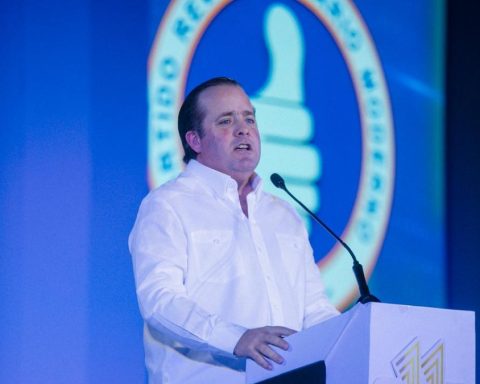The capital official acknowledged that financing will be one of the main challenges. “We must look for solutions that allow us to make the investments we have to make in electromobility,” he said.
One of the projects that will help in that regard, he commented, will be the new permanent license, which is projected to be available in November. “We hope it will help us raise around 1,200 to 1,500 million pesos,” he stated.
(Photo: Anylú Hinojosa-Peña/Expansión)
He explained that these resources are projected to invest in infrastructure works, non-motorized transportation, electromobility and a road safety program.
Olvera Cravioto placed housing and electromobility as the main challenges for Mexico City.
Regarding housing, he indicated that betting on green homes helps move towards more accessible homes and it is with the help of the use of data that measures can be taken to lower the demand for the homes themselves.
“Housing can be affordable and green and that is a challenge in which we can help because the moment you lower water and energy requirements you lower stress. When you think about inclusion and sustainability, they are things that go hand in hand,” he said.

(Photo: Anylú Hinojosa-Peña/Expansión)
Data, a tool to be more efficient
Juan Pablo De Botton, Secretary of Administration and Finance, stated that this administration that begins in the capital, headed by Clara Brugada, will seek to take advantage of technological advances such as those implemented in fintech to facilitate procedures and payments for citizens.
“In Mexico City we are going to take advantage of all this experience (…) we want the experience of the treasury and other services offered in the city to be no different,” he stated.
Data is a fundamental tool and they are a fundamental tool because they will allow us, just as we were able to do in the Federation, to be very efficient to generate the income that generates our strength,
Juan Pablo De Botton, Secretary of Administration and Finance of CDMX.
Olvera Cravioto agreed that “data today is a great source of information”, especially making the difference by gender because it gives you important information to make programs and policies; survey and know the populations well, and make it inclusive of all actors and in this the private sector has a lot to contribute.
The Country Officer for Mexico gave as an example of the use of data the case of Chile, where the fleet of the largest bus system in Latin America was supported with a long-term lease contract, separating ownership from operation to search the operation scheme that best suits the public entity.

















